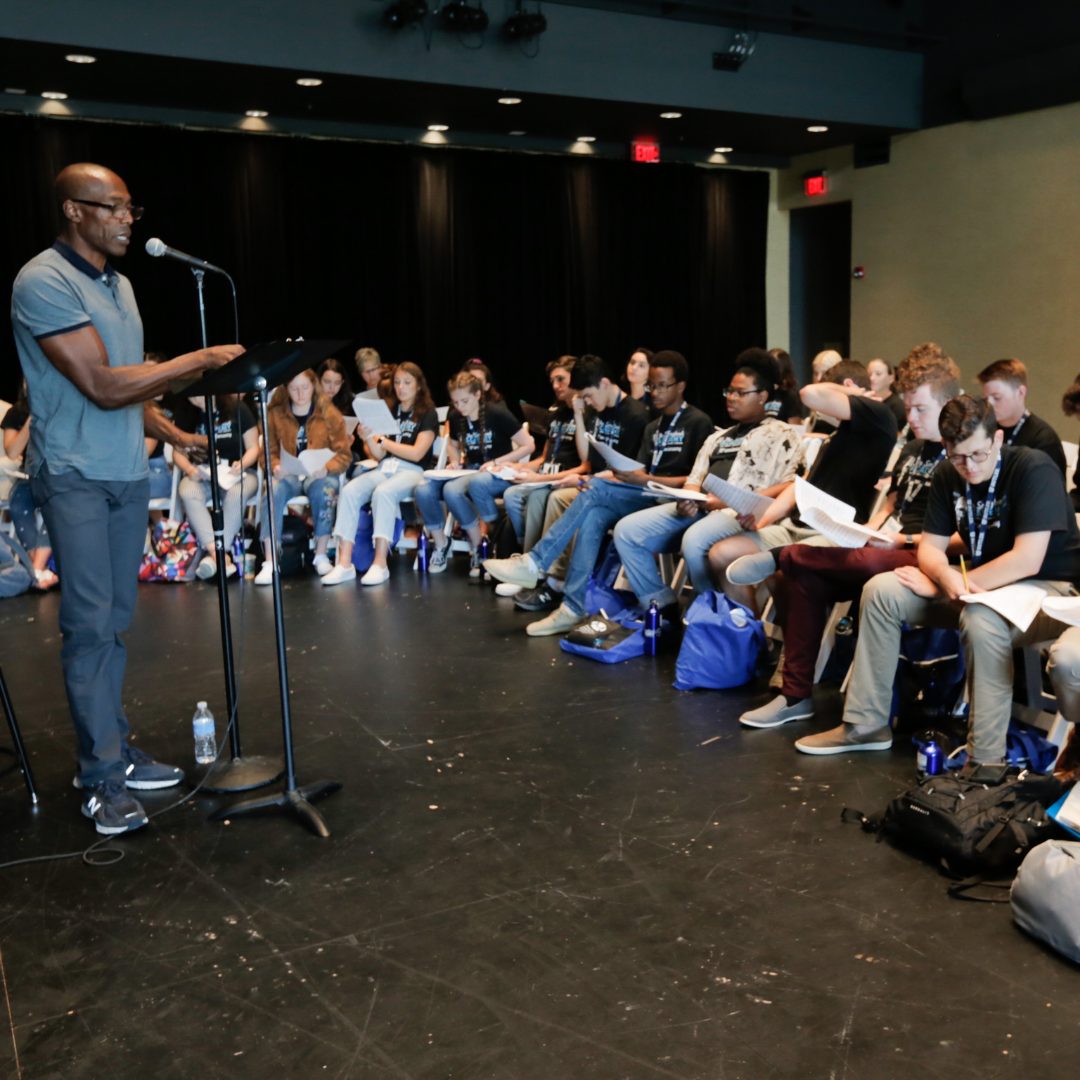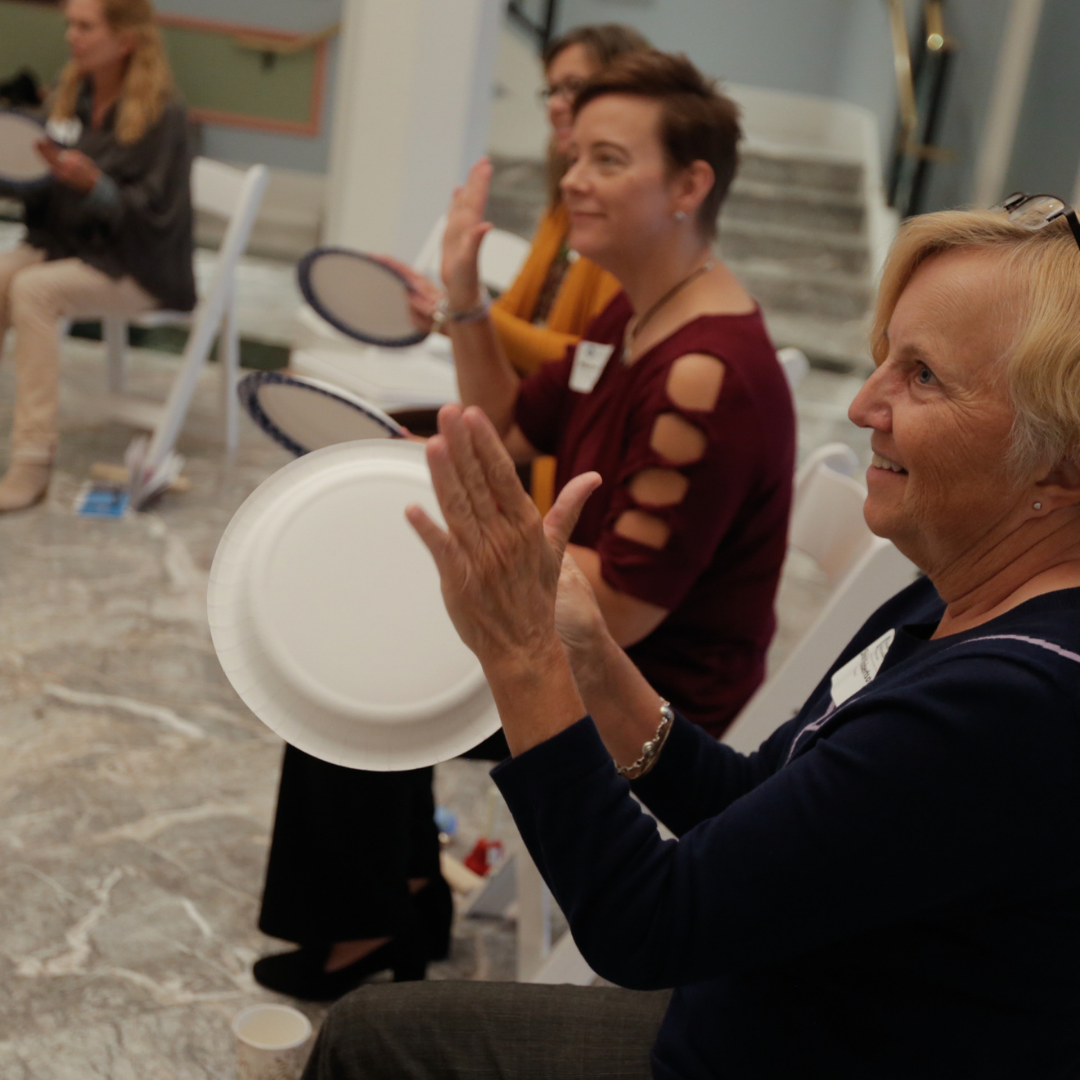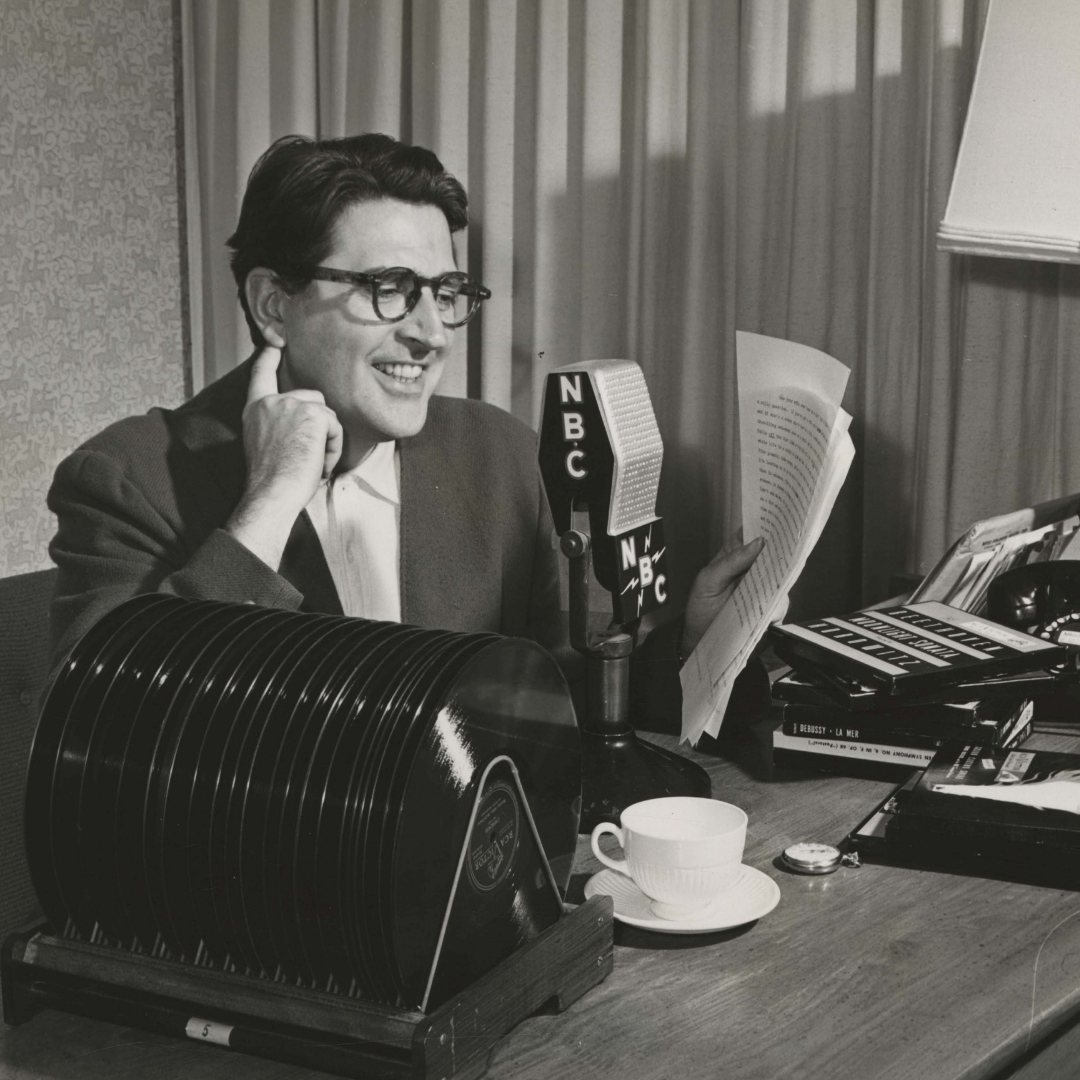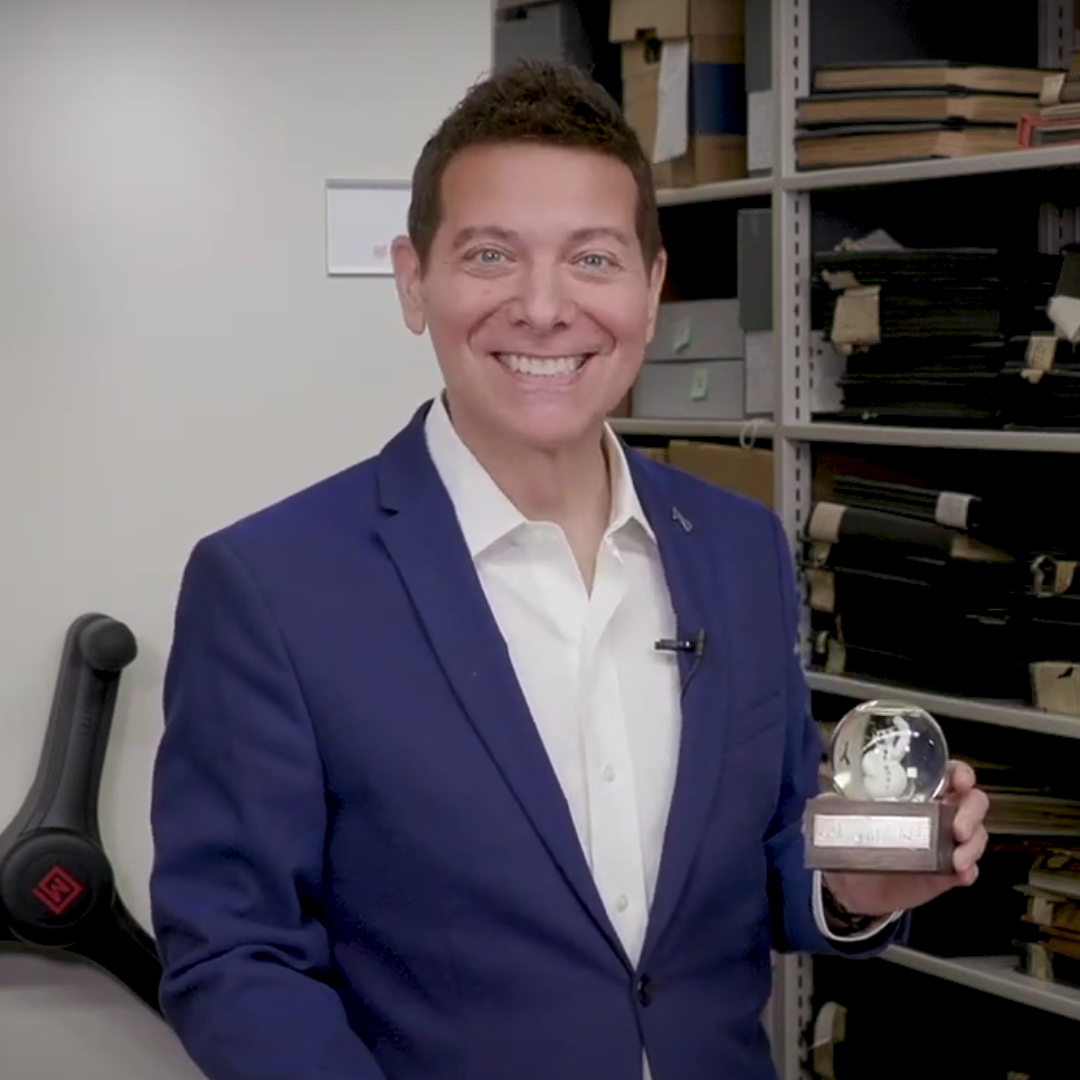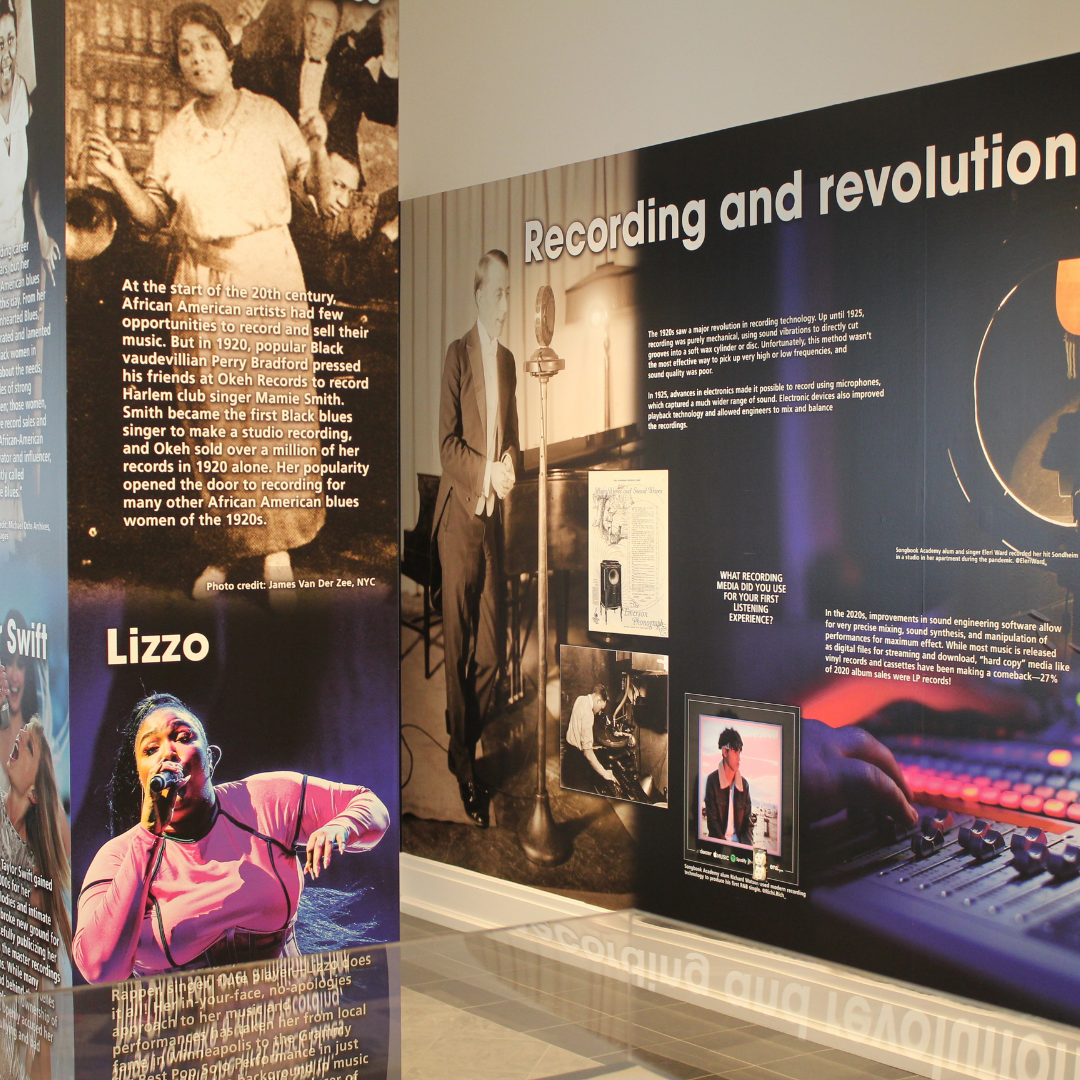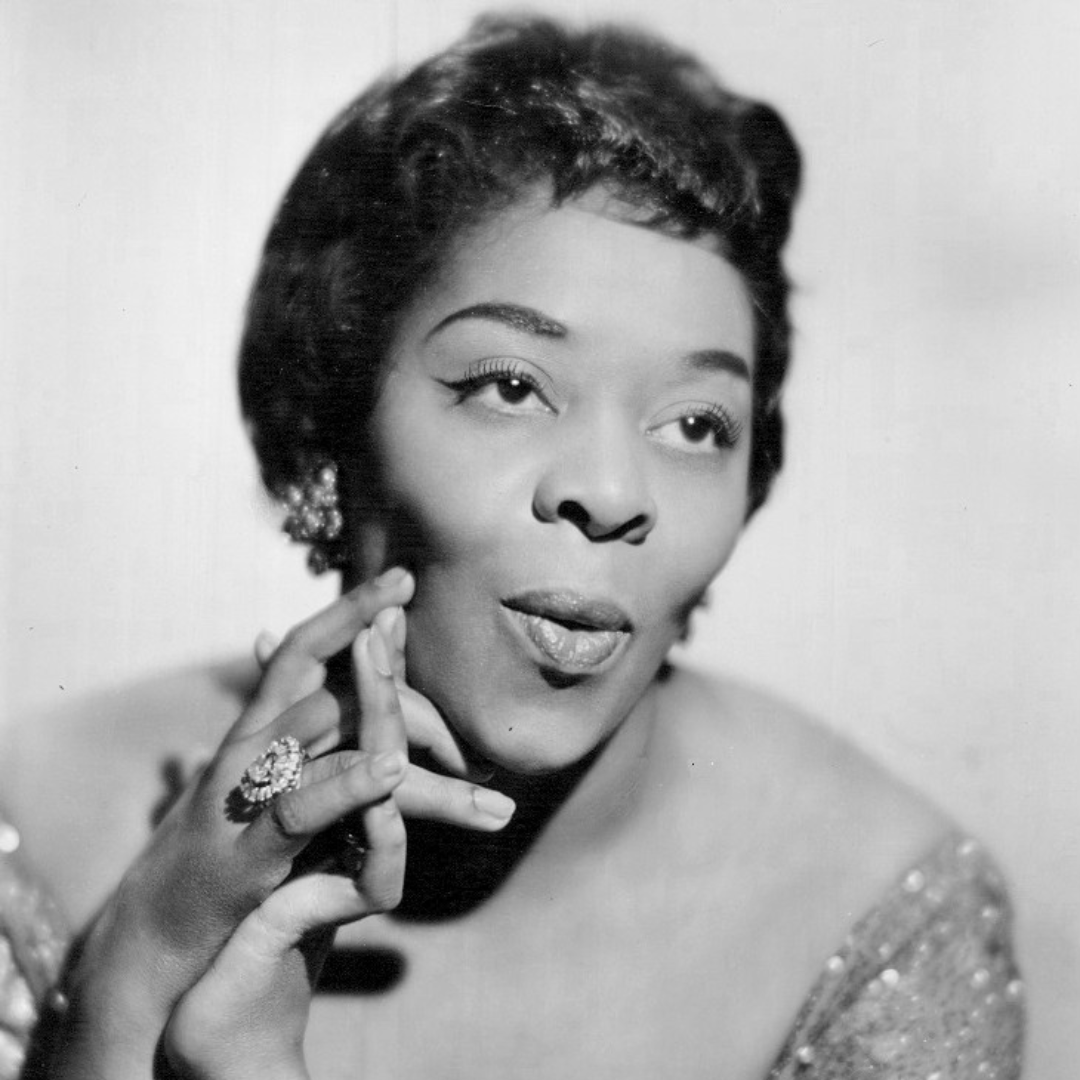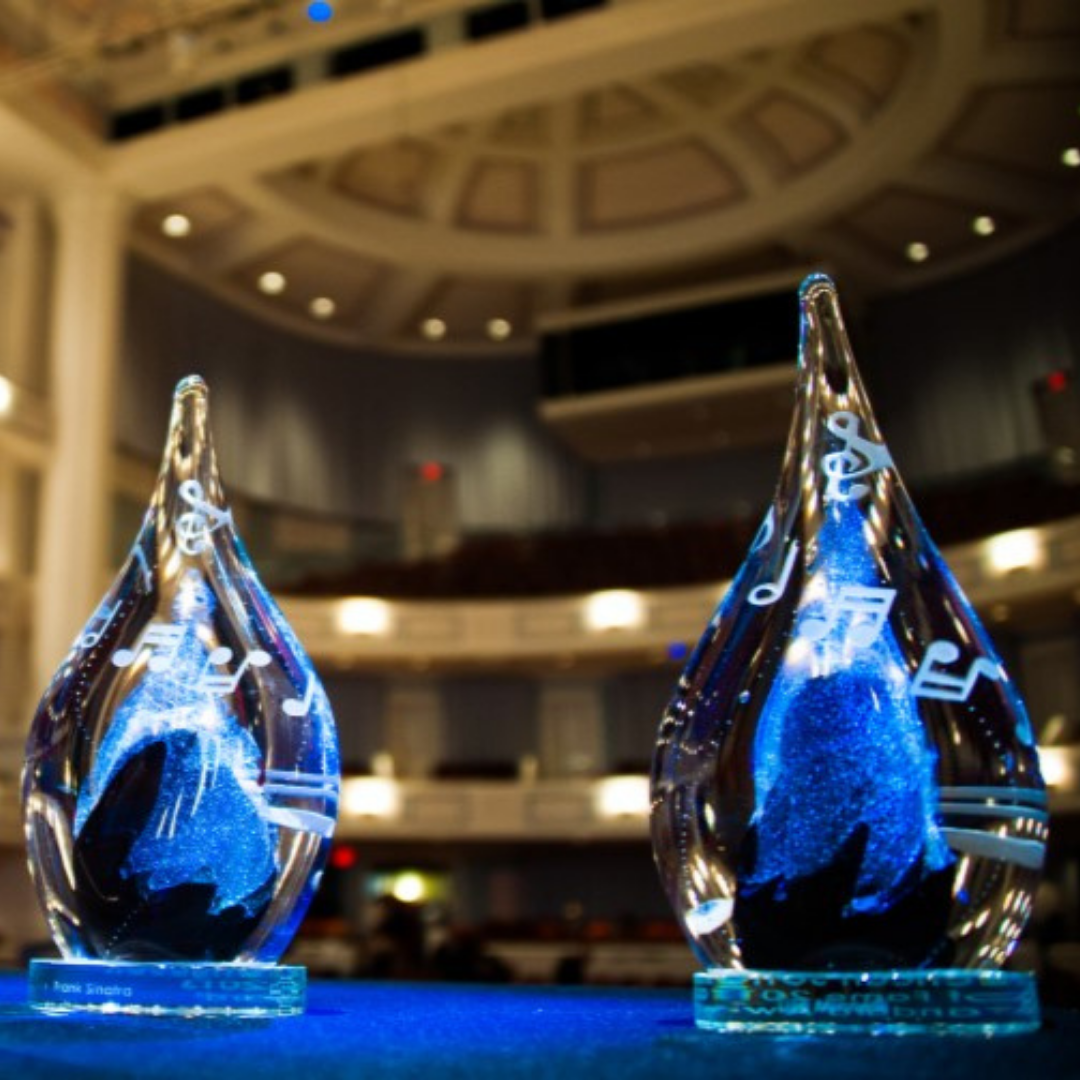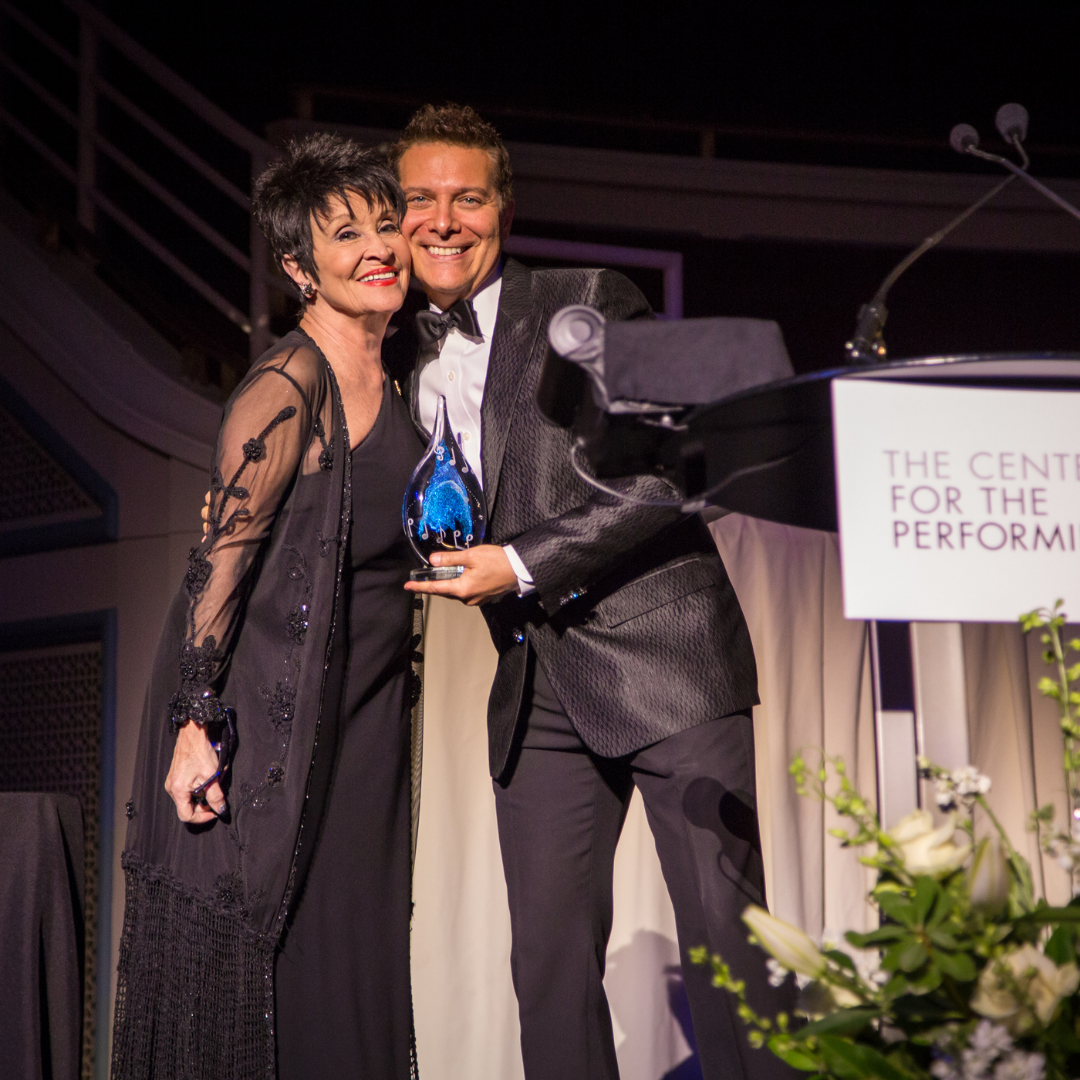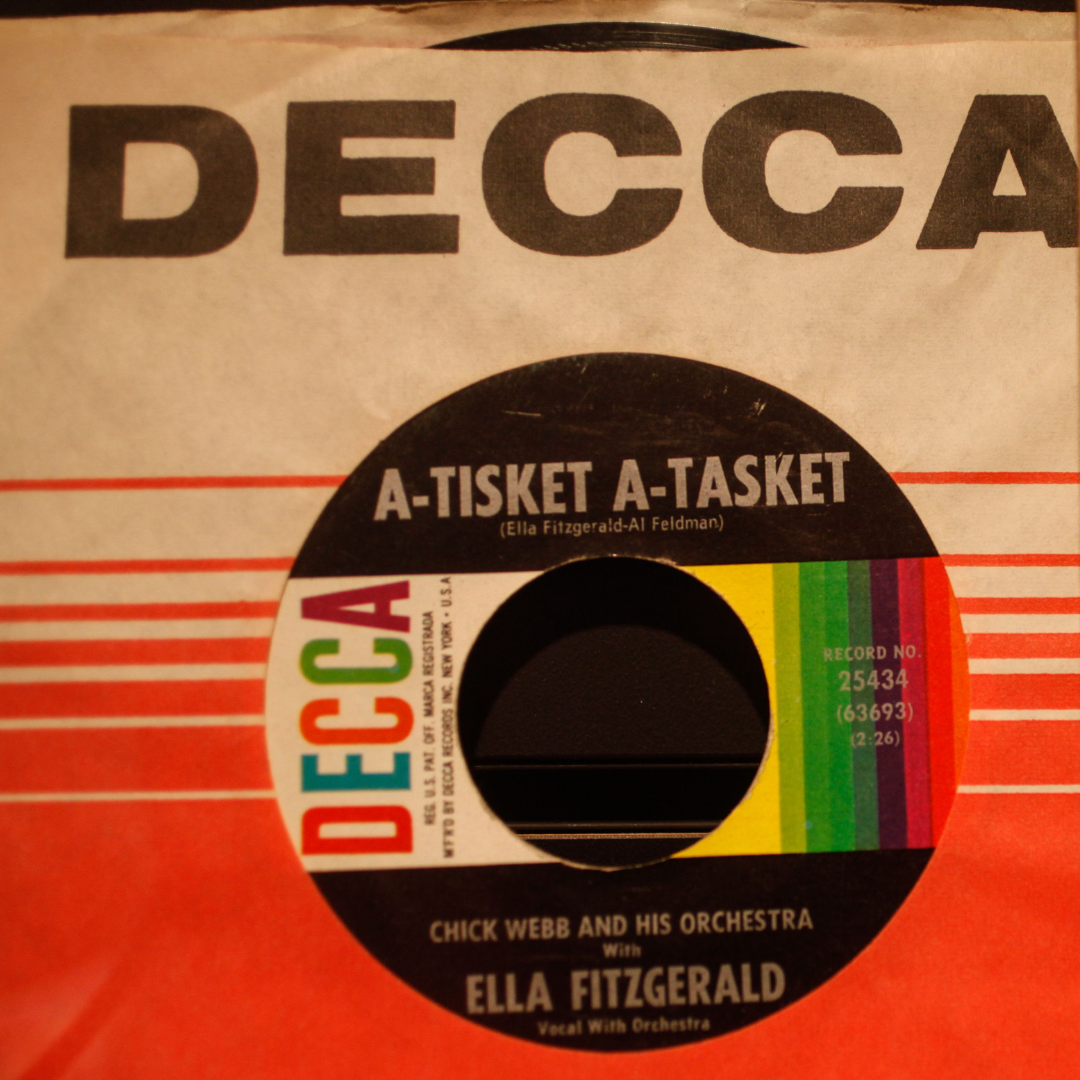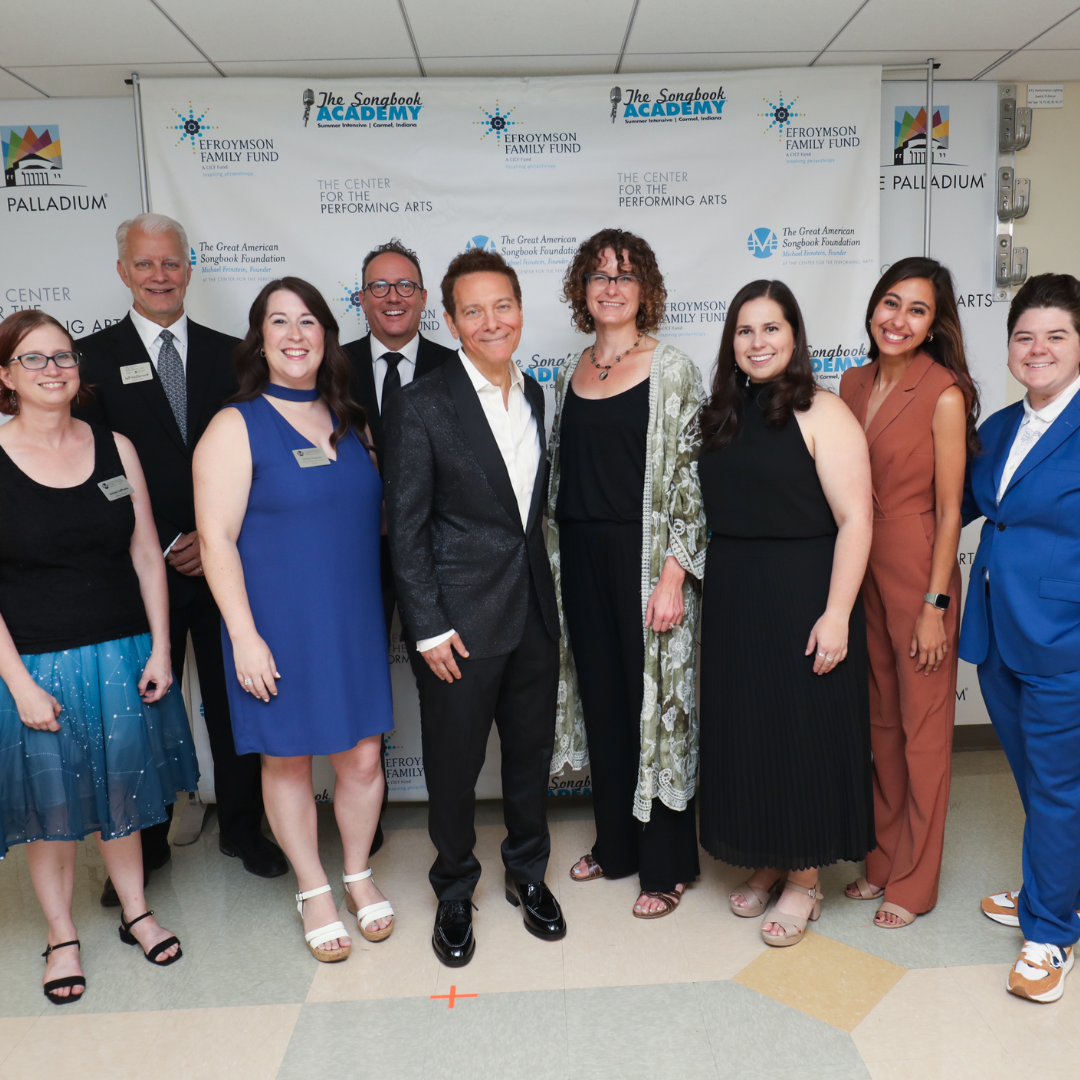Rodgers & Hart ― Rodgers & Hammerstein
January 1, 2021
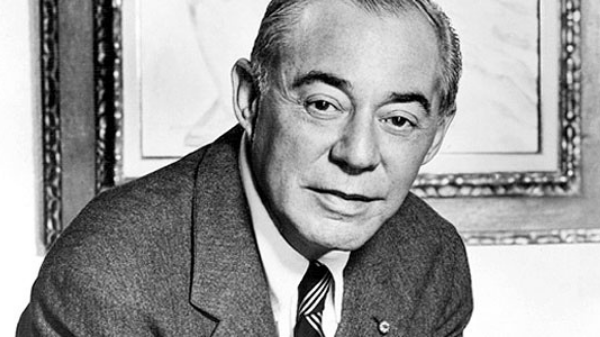
A Fine Romance: Jewish Songwriters, American Songs, 1910-1965
Featuring text from "A Fine Romance" traveling exhibit curated by David Lehman, and
developed by Nextbook Inc. and the American Library Association Public Programs Office
“There isn’t anything I wanted to do, that I haven’t. At the same time, there isn’t anything I’ve ever done that I didn’t want to do better.”
– Richard Rodgers
Meet Richard Rodgers
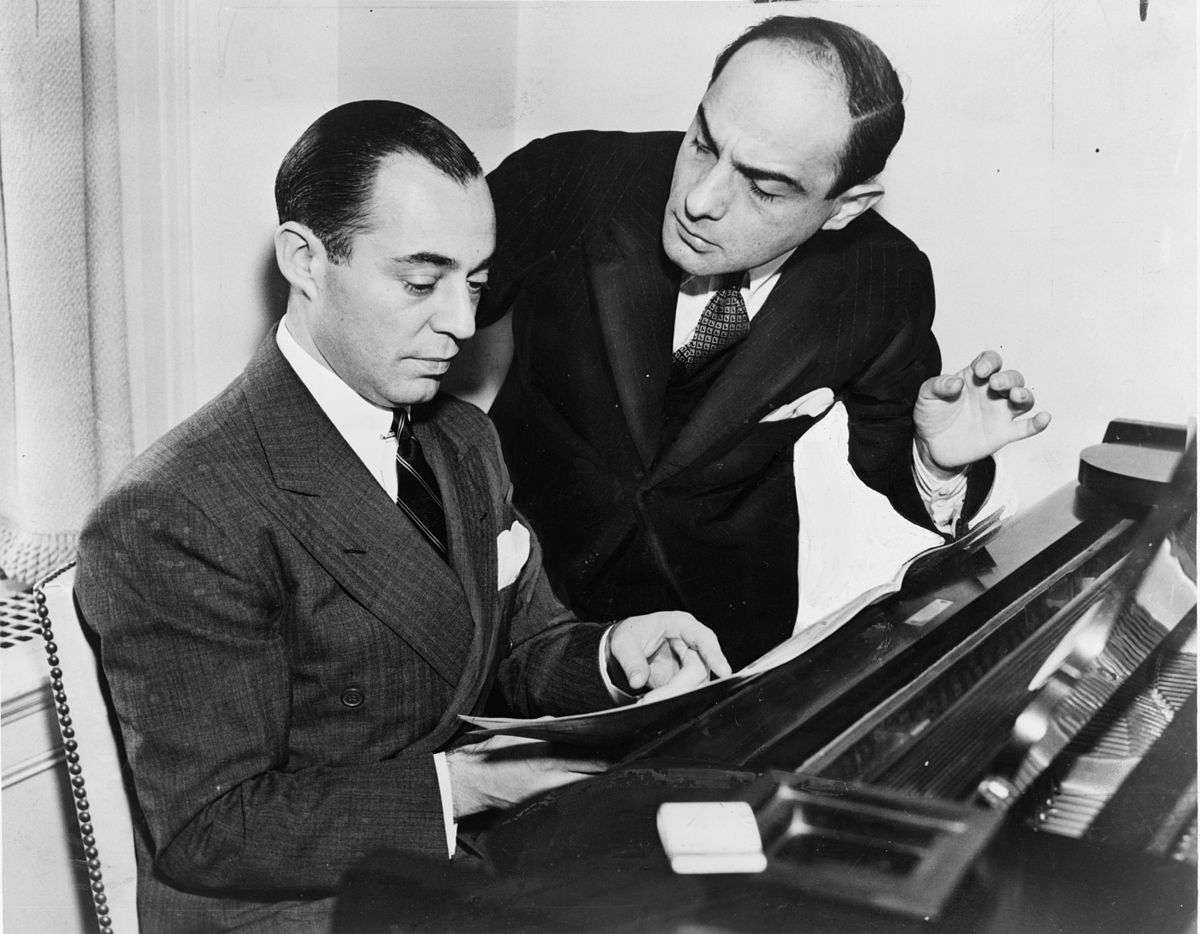
For two decades, Richard Rodgers (1902-1979) wrote songs in an exclusive partnership with Lorenz Hart (1895-1943). With Hart’s decline and untimely death in 1943, Rodgers commenced the collaborating with Oscar Hammerstein (1895-1960) that produced five landmark Broadway musicals and an Oscar-winning Hollywood movie. Working with Hart, Rodgers had written the music first. With Hammerstein, the order was reversed. And where Rodgers and Hart set store by irony and wit (rhyming “romance” with “those ants that invaded my pants” in “Bewitched, Bothered, and Bewildered”), the later partnership favored the full-throated sentiment of “If I Loved You” and “Some Enchanted Evening.”
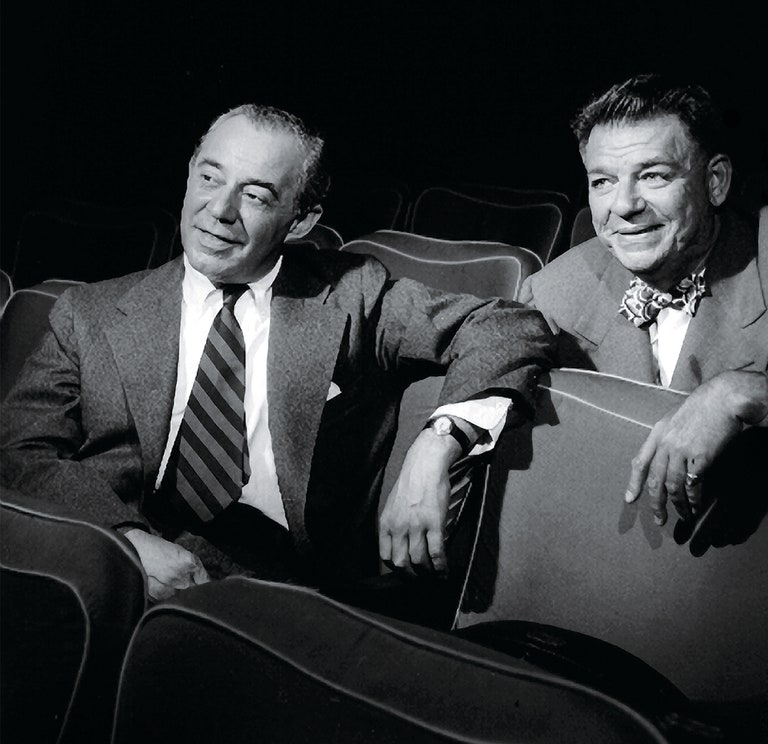
Rodgers and Hammerstein were the blue-chip brand on Broadway from Oklahoma! in 1943 through The Sound of Music in 1959. It surprises people to learn that Oklahoma! was written by two New Yorkers who had never been to that state but had a gloriously optimistic vision to share. Rodgers and Hammerstein created an Oklahoma of the imagination to counter the grim images of uprooted Okies fleeing the “dust bowl” in the Great Depression. “The Surrey with the Fringe on Top” may sound like cowboy music but is entirely the product of Rodgers’ imagination.
A musical in the “integrated” manner of Show Boat, Oklahoma! began its record-breaking Broadway run on March 31, 1943, to the strains of one of Rodgers’ signature waltzes, “Oh, What a Beautiful Morning.” Characteristically, Hammerstein had spent weeks on the lyric before showing it to Rodgers, who marched to the piano and wrote the tune in a matter of minutes. With the nation in a global war, the “bright golden haze on the meadow” struck a blow for American democracy. As the chorus sings in the title song, “We know we belong to the land, / And the land we belong to is grand.”
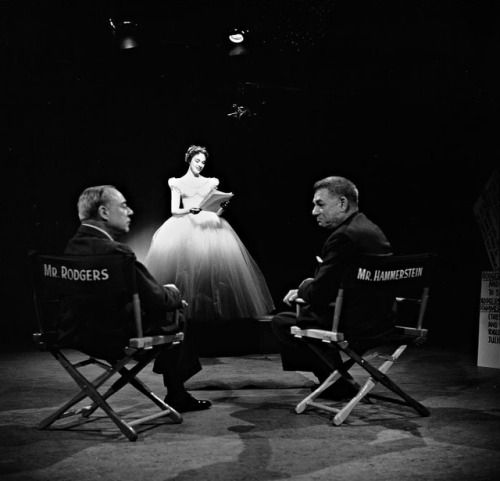
It may be that, of the works in the Rodgers and Hammerstein canon, Carousel has the finest music. The opening waltz alone confirms Rodgers as America’s “waltz king,” the successor to Kern as Broadway’s supreme melodist. Oklahoma! has always been the most popular of the shows, long a beloved staple of summer stock and summer camp. The Sound of Music strikes some as saccharine, and yet one of Julie Andrews’ songs did double duty as a John Coltrane jazz classic, “My Favorite Things.” The King and I boasts the superb theatrical sequence culminating in the polka “Shall We Dance?” The movie State Fair has “It Might As Well Be Spring,” Hammerstein at his most lyrically wistful.
But the greatest Rodgers and Hammerstein collaboration may have been South Pacific, which was the hottest ticket when it opened on Broadway in 1949 with opera singer Ezio Pinza and theater legend Mary Martin as the leads—and again in a Lincoln Center revival in 2008. The integration of a brilliant score with a coherent plot—and one with noble aims—reached its apotheosis in South Pacific. In parallel love affairs, racial prejudice stands as the main obstacle in the path of true love. The score ranges from the comic (“There Is Nothing Like a Dame”) to the romantic sublime (“Some Enchanted Evening”). Set on an island in the Pacific theater during World War II, where the world is divided between friend and foe, sailor and nurse, officer and enlisted man, naïve Americans (‘corny as Kansas in August’) and exotic natives (“Bali Ha’i”), it is the most theatrical of musicals, the most musical of serious plays. Whoever would understand American in the middle of the twentieth century must see South Pacific.
''Mr. Rodgers never did live along Tin Pan Alley; he was lost at sea as a boy and, when rescued, kept hearing inappropriate sounds. They remain inappropriately perfect.'' – Walter Kerr
Day and Night: Rodgers and Hammerstein -
Richard Rodgers reminisces about his career with lyricists Oscar Hammerstein II
and Lorenz Hart, and discusses how music has influenced his life.
Host: James Day. Classic public television talk program from 1973-1974.
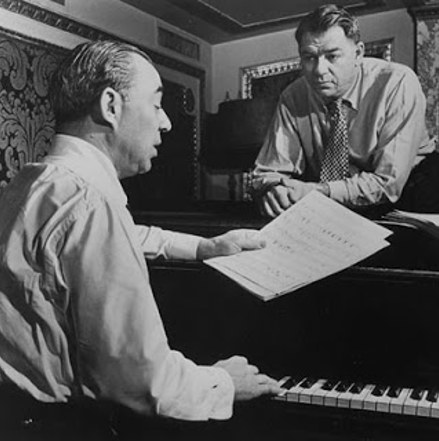
Learn more about Richard Rodgers
Rodgers & Hammerstein Official Website: https://www.rnh.com/home.html?referer=
PBS American Masters: http://www.pbs.org/wnet/americanmasters/richard-rodgers-about-richard-rodgers/690/
Songwriter's Hall of Fame: https://www.songhall.org/profile/Richard_Rodgers
Jewish Current Activist Politics & Art: http://archive.jewishcurrents.org/richard-rodgers/
"Premiere of the Musical 'Show Boat' based on a novel by Edna Ferber" - Jewish Women's Archive
https://jwa.org/thisweek/dec/27/1927/show-boat
About A Fine Romance
Recognizing that music and the arts have a unique power to build bridges and heal the human spirit, there is no better time to celebrate the contributions that immigrants from so many lands and cultures have made to American life. The Great American Songbook Foundation is proud to present this exhibition, A Fine Romance: Jewish Songwriters, American Songs, 1910-1965, curated by David Lehman and developed by Nextbook Inc. and the American Library Association Public Programs Office.



